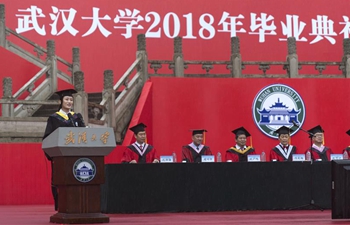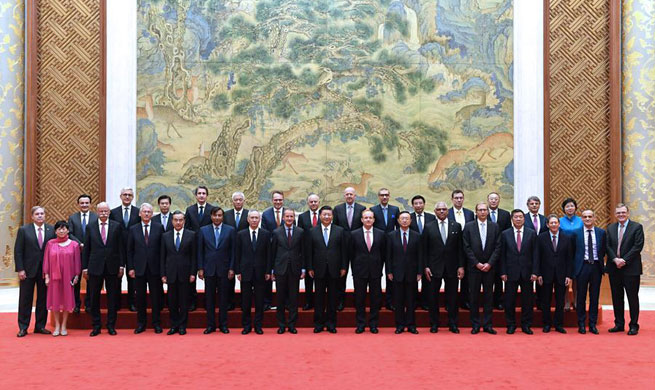JERUSALEM, June 22 (Xinhua) -- The growing income gap between Israel's two labor markets is having a negative impact on the economy that could threaten its status as an innovative start-up nation, experts said.
Israeli decision-makers expressed their concerns about the situation at the two-day Eli Hurvitz Conference on Economy and Society that ended on Wednesday.
The conference, attended by ministers, lawmakers, public sector officials, and representatives of employees and employers, discussed the situation of Israel's labor situation and the challenges and opportunities it faces.
Bank of Israel's Governor Karnit Flug, the keynote speaker, explained the threat of such dual-labor markets to the economy.
On one hand, Israel has a flourishing high-tech and innovation sector, where the country has become a world leader. However, the industry employs only nine percent of the population.
On the other hand, Israel has several traditional industries, such as manufacturing and service industries, which are characterized by low productivity and growth.
Flug said Israel has a significant shortage of trained workers in the high-tech fields, leading to a constant rise in salaries. At the same time, there is a surplus of workers in occupations which are expected to become obsolete.
This means Israel has the highest income gap in advanced economies, Flug added.
The growing gap creates a tenuous economic climate that threatens social and political stability, with the potential to lead to political extremism, as already seen in European countries.
Many speakers agreed that Israel cannot place all bets on the high-tech industry and must understand how to bridge gaps between high-tech and low-tech industries, while preserving Israel's status as a "start up" nation.
Governments and organizations around the world have long recognized the importance of taking measures to meet the needs of evolving labor markets.
Yohanan Plesner, president of the Israel Democracy Institute, opened the first session of the conference by proposing to focus on national long-term strategies.
"We must implement effective structural changes that tackle the problems embedded within our system of government," he explained.
Former Minister of Education Gideon Sa'ar remarked that a different approach to general reform is needed in Israel's education system, which could only be achieved with the improvement of treatment toward teachers and educators.
Sa'ar presented a systematic plan to reform the training and criteria for teachers' qualification as well as raise teachers' salaries.
The previous government's solution to the lack of skilled workers was to provide basic skills for all students, with budget allocated to the educational system covering courses such as mathematics, English and sciences, but the current government has cancelled this practice, said Sa'ar.
Flug said transport infrastructure is another challenge to implement a strategic plan.
Poor quality of the transport infrastructure in Israel, particularly public transit, is one of the factors that affect the geographic dispersal of the population and the slow growth of productivity.
Workers from peripheral communities, despite their high education, find themselves working in low-tech positions, as the majority of high-tech companies are located in the center of Israel.
Flug said the main reason that the government has been unsuccessful in dealing with such social and economic challenges is that every newly elected party prioritizes the implementation of the policies which will have an immediate impact, rather than long-term strategies.

















